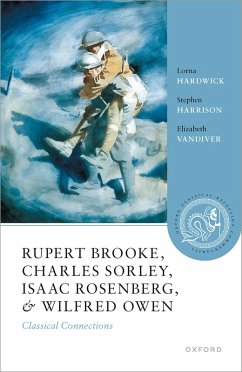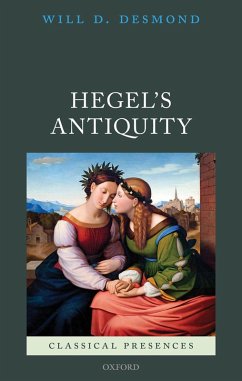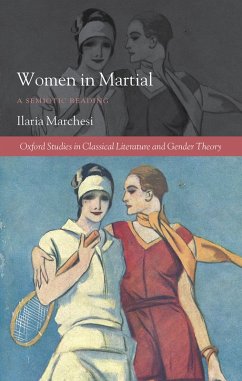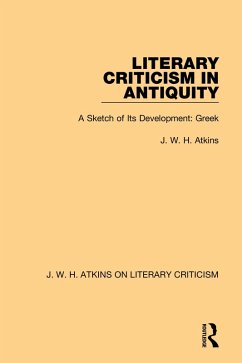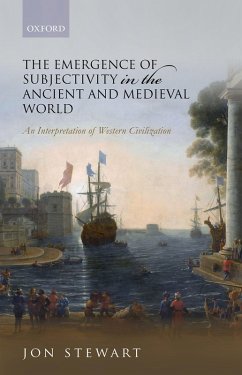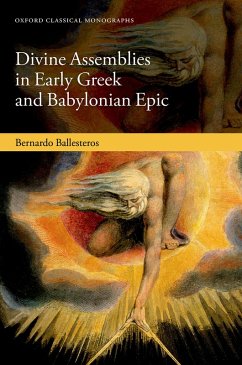
Greek and Roman Antiquity in First World War Poetry (eBook, ePUB)
Making Connections
Versandkostenfrei!
Sofort per Download lieferbar
15,95 €
inkl. MwSt.
Weitere Ausgaben:

PAYBACK Punkte
8 °P sammeln!
Rupert Brooke, Wilfred Owen, Isaac Rosenberg, and Charles Sorley all died in the First Word War. They came from diverse social, educational, and cultural backgrounds, but for all of the writers, engagement with Greek and Roman antiquity was decisive in shaping their war poetry. The world views and cultural hinterlands of Brooke and Sorley were framed by the Greek and Latin texts they had studied at school, whereas for Owen, who struggled with Latin, classical texts were a part of his aspirational literary imagination. Rosenberg's education was limited but he encountered some Greek and Roman li...
Rupert Brooke, Wilfred Owen, Isaac Rosenberg, and Charles Sorley all died in the First Word War. They came from diverse social, educational, and cultural backgrounds, but for all of the writers, engagement with Greek and Roman antiquity was decisive in shaping their war poetry. The world views and cultural hinterlands of Brooke and Sorley were framed by the Greek and Latin texts they had studied at school, whereas for Owen, who struggled with Latin, classical texts were a part of his aspirational literary imagination. Rosenberg's education was limited but he encountered some Greek and Roman literature through translations, and through mediations in English literature. The various ways in which the poets engaged with classical literature are analysed in the commentaries, which are designed to be accessible to classicists and to users from other subject areas. The extensive range of connections made by the poets and by subsequent readers is explained in the Introduction to the volume. The commentaries illuminate relationships between the poems and attitudes to the war at the time, in the immediate post-war years, and subsequently. They also probe how individual poems reveal various facets of the poetry of unease, the poetry of survival, and the poetics of war and ecology.
Dieser Download kann aus rechtlichen Gründen nur mit Rechnungsadresse in A, B, BG, CY, CZ, D, DK, EW, E, FIN, F, GR, HR, H, IRL, I, LT, L, LR, M, NL, PL, P, R, S, SLO, SK ausgeliefert werden.




